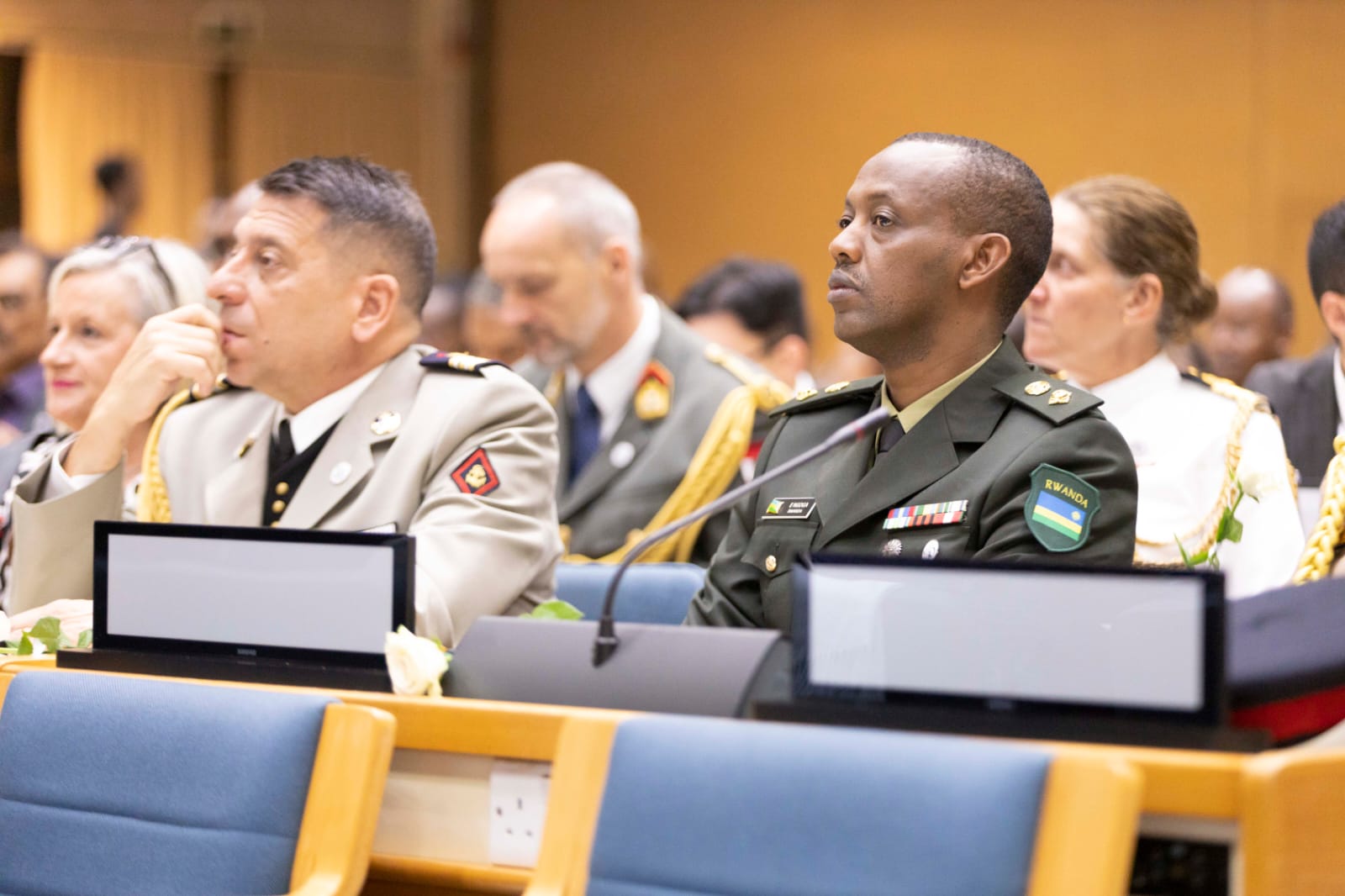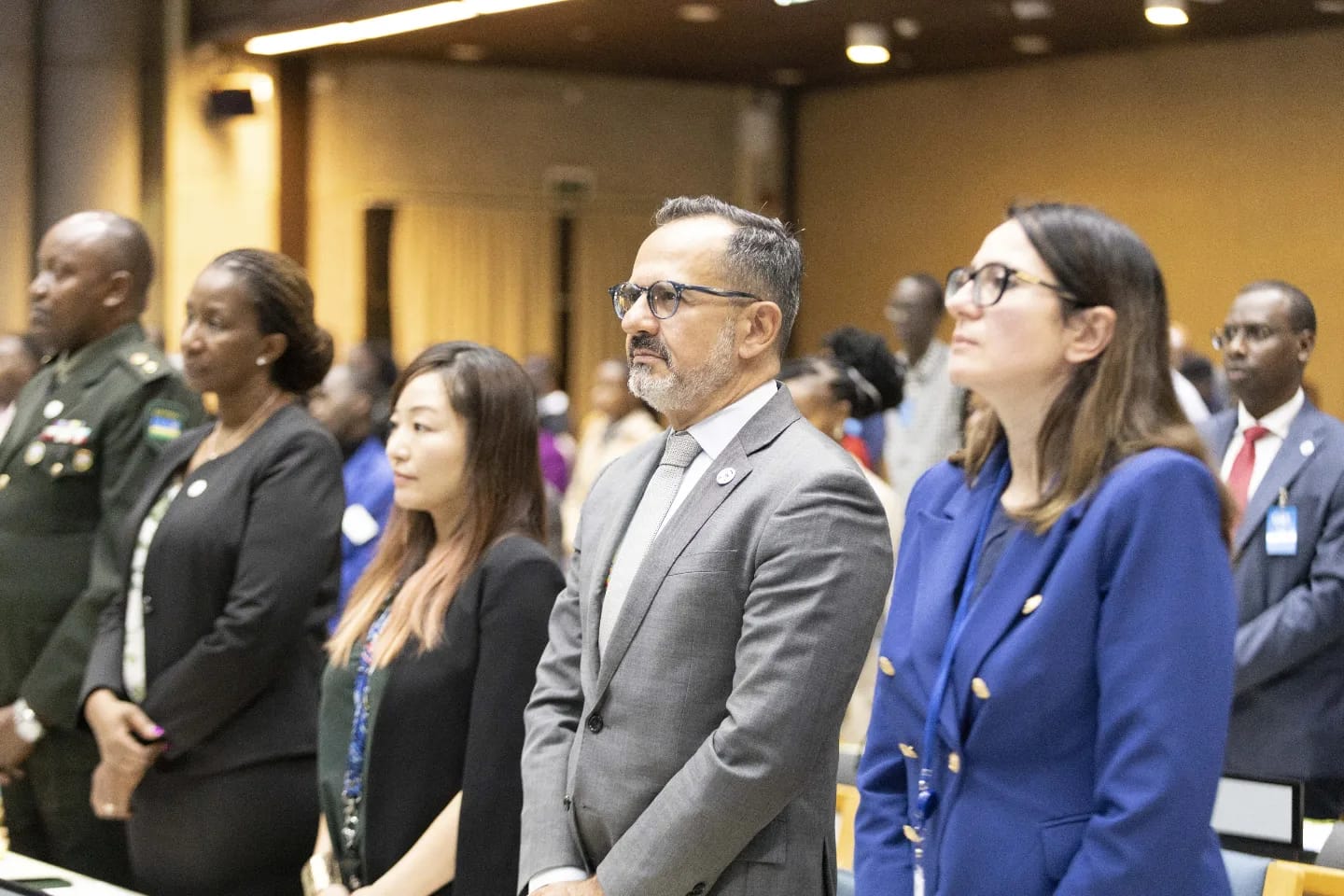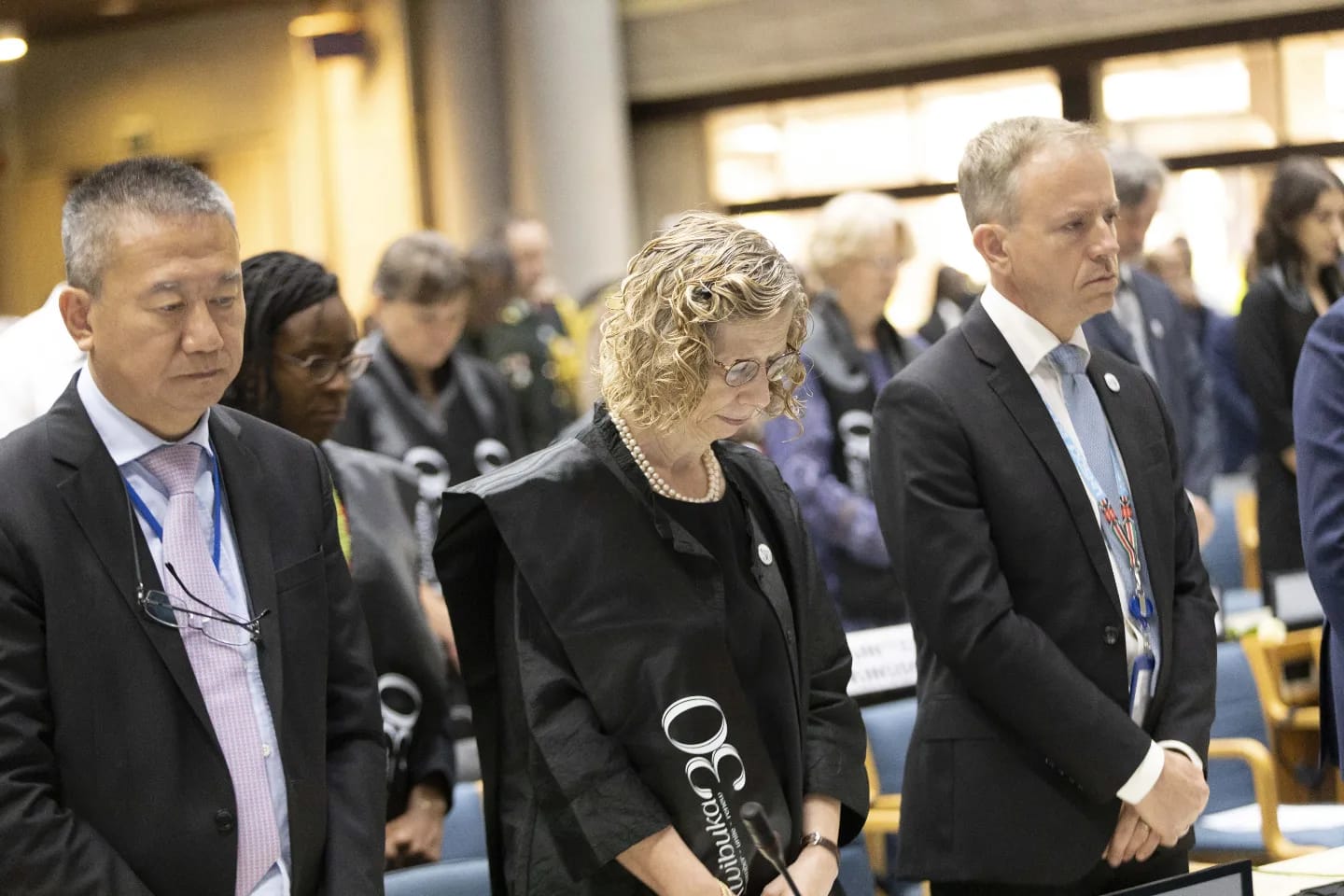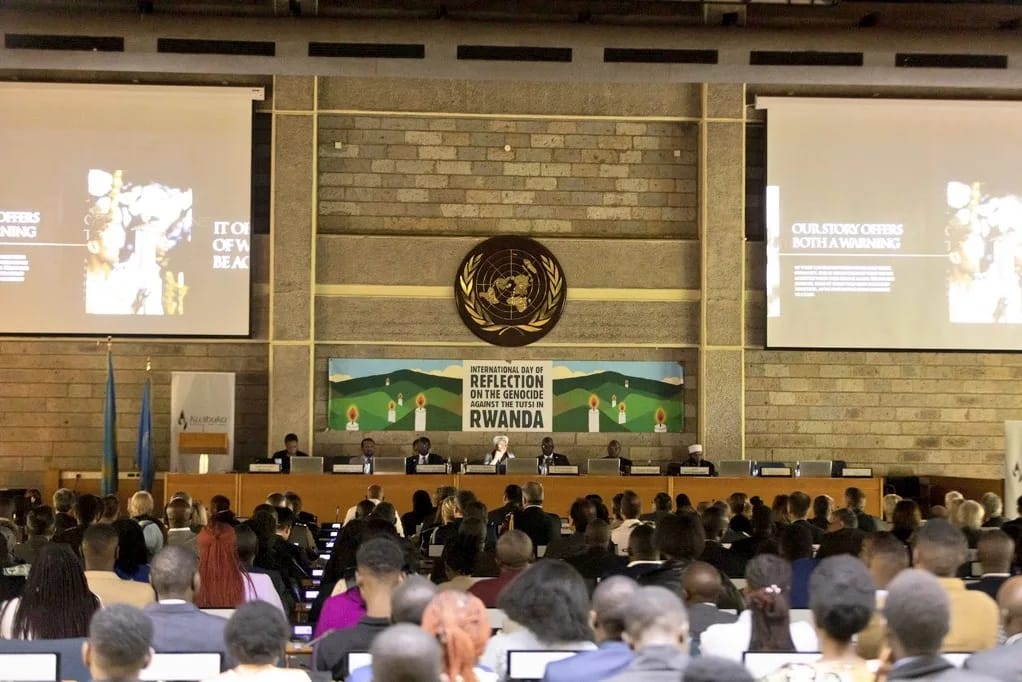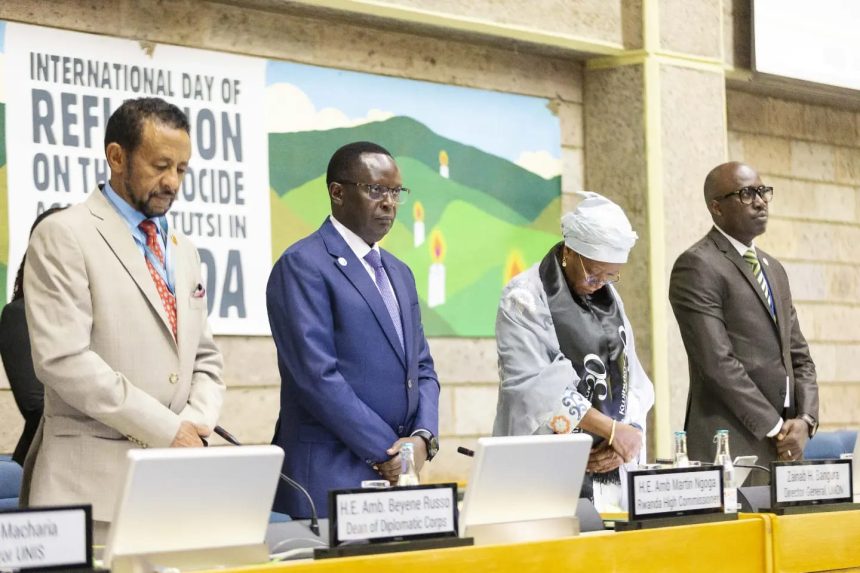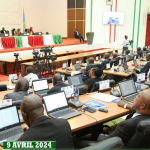More than 1000 people, including representatives from various UN agencies, members of the Diplomatic corps, students, Kenyans, Friends of Rwanda, and the Rwanda community in Kenya, gathered in Nairobi to mark the solemn occasion of the 30th Anniversary of International Day of Reflection on the 1994 Genocide against the Tutsi in Rwanda.
The event, organized by the United Nations Office at Nairobi in collaboration with the Rwanda High Commission in Kenya, was a poignant tribute to the victims of one of the darkest chapters in human history.
This year’s commemoration theme, “Remember, Unite, Renew,” encapsulates the collective sentiment of reflection, unity, and resilience in the face of unimaginable tragedy.
Key speakers at the event included H.E Martin Ngoga, the High Commissioner of Rwanda in Kenya; Mrs. Zainaib Hawa Bangura, the Director-General of the UN Office at Nairobi (UNON); and Hon. Dr. Korir Sing’Oei, Principal Secretary of Foreign Affairs in the Ministry of Foreign and Diaspora Affairs, Republic of Kenya.
In his address, the Rwanda High Commissioner in Kenya, emphasized the importance of avoiding ambiguity in naming the crime of genocide.
Reflecting on historical precedents, he said that, “The uniqueness of the crime of genocide is in the intent to uproot a group in part or in whole. It is in the inability of those targeted based on their belonging to a particular group to escape death since the crime they stand accused of is that of being who they are. The crime of being is inescapable.”
He further lamented the failure of the international community to intervene during the genocide against the Tutsi in Rwanda, stating, “As the genocide against the Tutsi was wreaking havoc, the international community was haggling over what to name what was happening. Nothing was done as had been envisioned through the establishment of the instrument of the Convention 46 years earlier.”
Hon. Dr. Korir Sing’Oei, the Principal Secretary of Foreign Affairs, echoed the sentiments of remembrance and collective responsibility.
He emphasized that, “We must never forget that the genocide against the Tutsi happened partly because the international community could not master the resolve to act in a preventative fashion to halt an imminent atrocity.”
Acknowledging Rwanda’s remarkable progress in the aftermath of the genocide, he stated, “Rwanda has raised the bar; it serves as a benchmark not only for gender equity and women empowerment but also for ease of doing business.”
Mrs. Zainaib Hawa Bangura, the Director-General of the UN Office at Nairobi (UNON), paid tribute to the victims and survivors of the genocide.
She remarked, “We will never forget the victims of this genocide, nor will we ever forget the bravery and resilience of those who survived, whose courage and willingness to forgive remains a bust of light and hope amidst this dark chapter in human history.”
Reflecting on the root causes of the genocide, she emphasized, “We can draw a straight line between the senseless slaughter of one million Tutsis and the decades of hate speech that preceded it inflamed by ethnic tension and the long shadow of colonialism.”
As the ceremony concluded, participants pledged to stand united against all forms of hatred and discrimination, ensuring that the atrocities of April 7, 1994, are never forgotten or repeated anywhere in the world.
